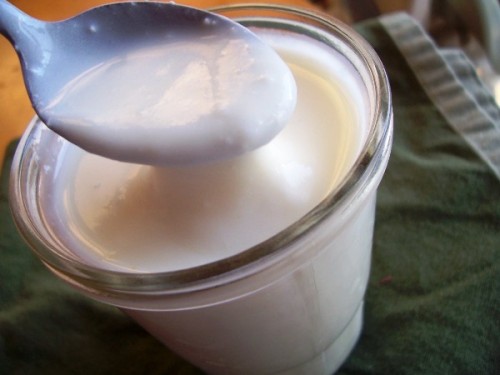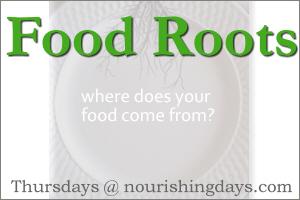The Importance of Probiotics

For the past few years we have heard a lot about probiotics from marketers of all sorts of food-like products. From bread to sugar-laden yogurts, companies are trying to cram these beneficial bacteria into the products most americans consume, convincing us that it’s the real deal.
Well, it’s not. Probiotics are not things that naturally occur in wheat-colored white bread and really shouldn’t be covered in sugar either.
What are Probiotics?
Literally, probiotic means "for life". They are basically a microorganism found in certain foods that can benefit the overall bacterial balance, and therefore health, of the body. (source) These little guys have big names like lactobacillus acidophillus and bifidobacterium infantis and are found in things such as breast milk and a host of fermented foods. Probiotics can help you absorb nutrients, keep your immune system strong, and keep uncomfortable conditions related to yeast and candida at bay.
It therefore stands to reason that if probiotics are "for life" then antibiotics are their antithesis. Antibiotics can kill off a harmful infection causing bacteria when you are very ill, but they also wipe out the good stuff needed for every day health.For that reason anyone who has had a course of antibiotics should look into supplementation, but more importantly adjusting their diets to include fermented foods.
Real Food Sources of Probiotics
If you have had a round of antibiotics or are struggling with yeast or candida issues you may want to consider supplementing with a good quality probiotic. Ultimately, however, we need to be eating fermented foods on a daily basis in order to maintain a proper balance of gut flora. So what foods can we eat that contain these helpful little guys?
We all know that yogurt contains probiotics, but there are many more examples of living foods that contain these friendly little bacteria.
- Fermented dairy. There is yogurt, of course, but also kefir, sour cream, creme fraiche, and even many different types of yogurt that you can make at home for a fraction of what you pay for it in the store. You can even keep your milk raw and culture it on the counter, without a yogurt maker. See resources to find a culture that you can experiment with. I’ve also written an article about fermented dairy for beginners.
- Lacto-Fermented Vegetables. One thing that is sorely lacking in the standard american diet are foods that have been preserved using lacto-fermentation. These vegetables are nutritional goldmines that are really tasty as well. Everything from sauerkraut to pickled cucumbers to salsa can be tasty additions to your meals while keeping your gut happy. See resources to find lacto-fermented vegetables. I also wrote an article about lacto-fermented vegetables for beginners.
- Naturally Fermented Beverages. Most people have enjoyed soda pop at one point or another. A great nutrient dense substitute is one of the naturally fermented beverages – kombucha, water kefir, beet kvass, and many others. Kombucha is the only one that I have experimented with and I wrote an article about how easy it really is – Kombucha For Beginners. You can find starters, or SCOBYS, along with a host of other starters here.
The idea is to integrate foods containing probiotics into our diet on a daily basis so that you can prevent the need for serious supplementation. I’ve heard some say that a little bit at every meal is a good idea. This is something that I am striving for, especially now that I am using fermentation as a method of preservation.
Just like with the other buzz nutrients, such as vitamin D and vitamin B12, what we eat every day can give us what our bodies need. And while we discover greater health, we can discover how tasty things like yogurt, sauerkraut, and kombuchareally can be.
This post is a contribution to Real Food Wednesday and Works For Me Wednesday.


I just read this article today, which is relevant to your argument about real-food sources of probiotics:
http://www.nytimes.com/2009/09/29/health/29well.html?_r=1&partner=rss&emc=rss
I don’t “do” dairy, but I have been fermenting coconut and almond milks with good success, and I just discovered water kefir. I’m trying to get some fermented foods in every meal. A few days ago I was reflecting on how difficult it was for me to adjust to the “acquired taste” of fermented foods, compared to my kids, who just eat them up because they’ve never known differently. Hooray for probiotics!
Oh our family LOVES our probiotics!!! We take the Vidazorb chewable probiotics ever since their kids chewable helped our son so dramatically with his food allergies and Eczema. They have been amazing in our life and now we all take the for the many benefits that probiotics are being shown to have for us! We would have to buy a whole lot of foods to get the amount we get in ours…but either way- I wish everyone would get them somehow! Thanks!
I am learning how to make water kefir – if anyone is interested see this post and one following it:http://www.kitchenstewardship.com/2009/09/15/is-water-kefir-as-good-as-soda-pop/
This week Cultures for Health will also give folks a free muslin bag with any water kefir orders through my site.
Important article!
Katie
I’m convinced that probiotics are the cure for most ailments! Time and time again I find myself recommending probiotics, and the people who take my advice are always amazed at the difference it makes. They saved my daughters’ life when she was having so many digestive issues she wasn’t growing. Hip hip hooray for probiotics!